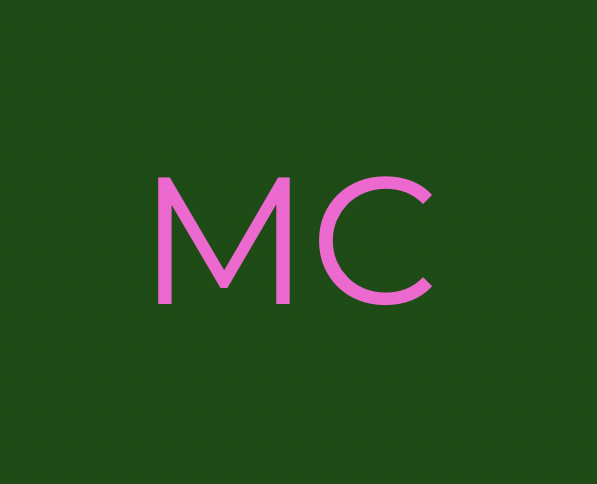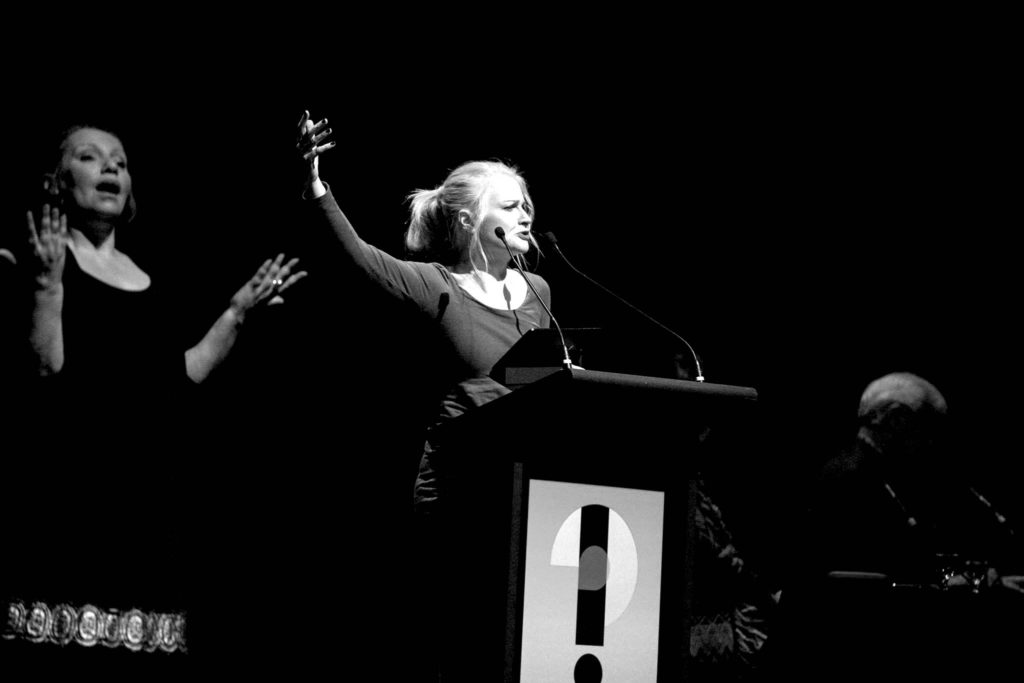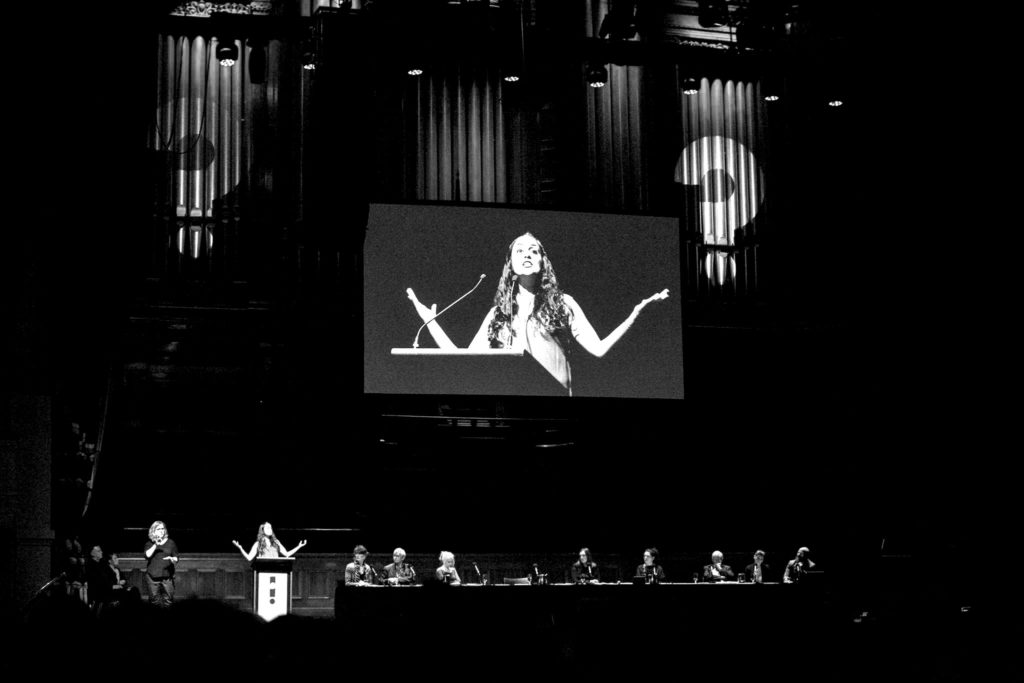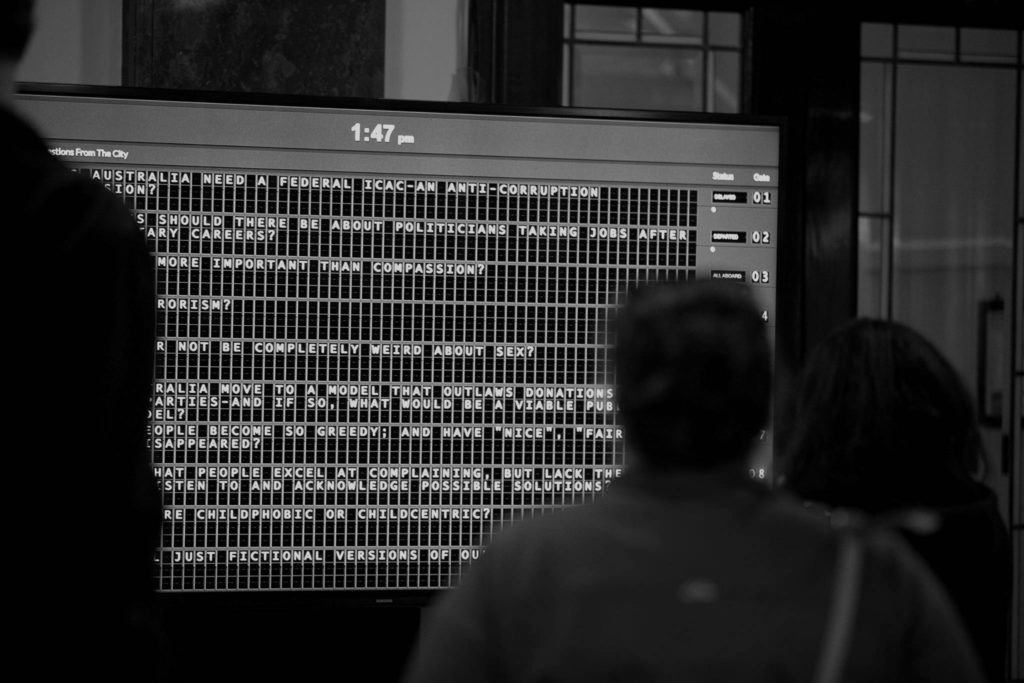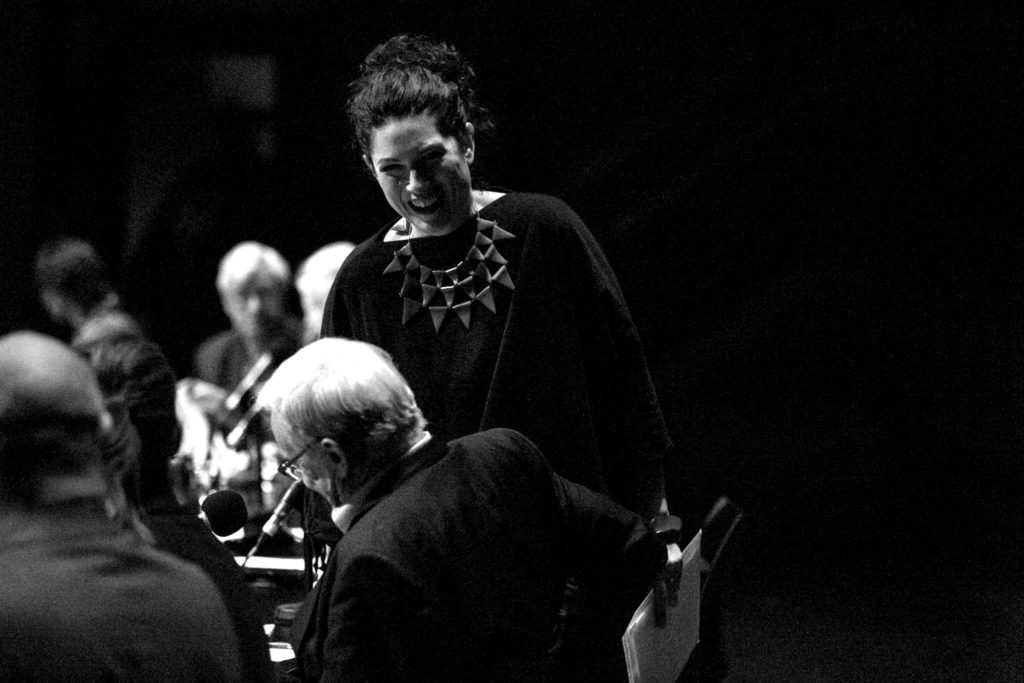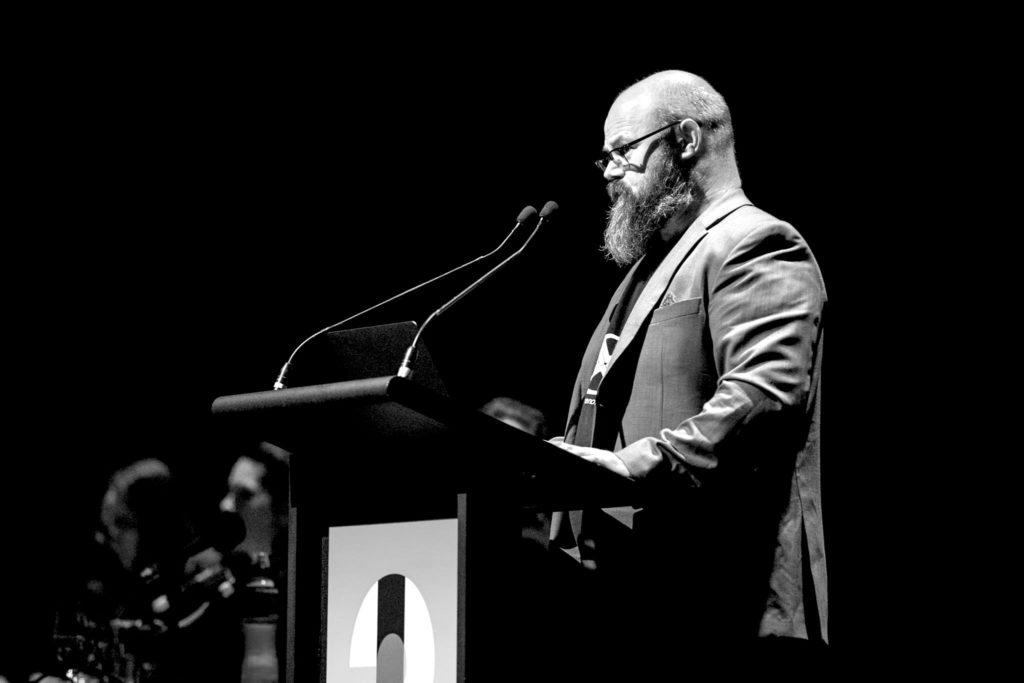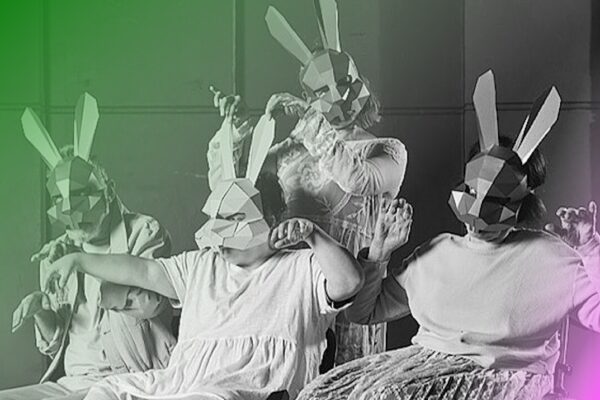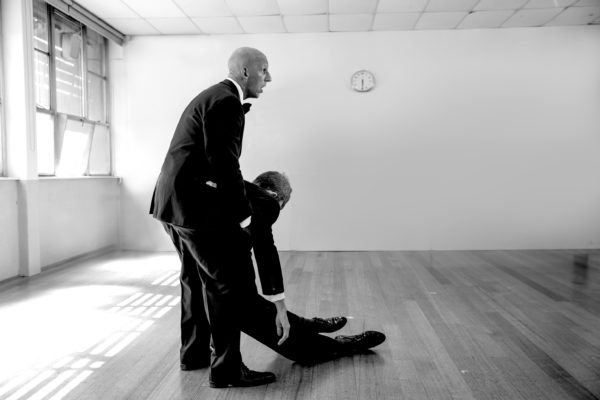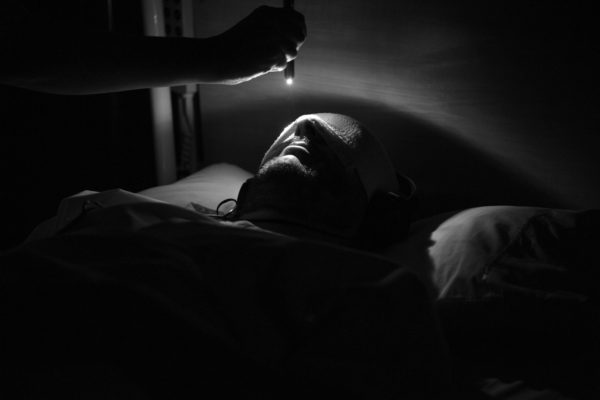QUESTIONS FOR THE NATION
Opening Wheeler Centre’s Festival of Questions, this discussion asks the audience to ask questions of themselves and of others. Deborah Frances-White opens with a rallying call to action that taps into the repercussions of Brexit and populism in the UK, and from here drawing parallels between geographical locations, class, generation and privilege. In the ring here, it’s Gen Y versus X versus The Baby Boomers. Breaking the ice and warming up the audience with her undeniable charisma and frank humour, Frances-White exploits the nuances of each generation, splitting the audience. She’s joined on this panel by Geraldine Doogue, Gareth Evans, Julian Burnside, Shireen Moris, Jamila Rizvi, and a woman who needs no introduction, Helen Razer. Voting, marriage, migration and mitigation of responsibility are all laid out on the table in this panel’s discussion.
Geraldine Dogue broached the topic of financial literacy, asking, “Why are we so addicted to debt?” Doogue took no prisoners but did successfully articulate what many of the Australian population must now be thinking. With so much talk recently of negative gearing, fiscal risk, amassing national debt and political spin from all sides of Australian politics, it is a loaded and reactionary place to kick things off.
Then, as if the panel thought the fiscal reality of this country and the rising tide of populism was not enough of a can of worms, we make a sharp turn to delve into the whitewashing and idea or lack thereof surrounding diversity in media. Particular focus is given to the issue of black voices being almost absent from mainstream conversations and the way this problem reflects more deeply-seated issues that dog our society and our country. In a microcosm of smaller and independent media outlets, there is space for such voices to be heard. This is a point in this discussion that perhaps rings truer than any other, and in this point we are shown light on the radical uprising against the mainstream in its early fledging form. In a brief moment of reflection, this is exciting.
The conversation continues to swirl around such issues until Helen Razer enters the ring like a knife slicing through a block of melting butter. Finally bringing some life to this conversation, she tackles each concept previously mentioned, bringing it home with her tenacity and tact (or, thankfully, lack thereof), drawing uncomfortable parallels, and bringing to the surface the true reality of our privilege as Australians that fuels our first world lifestyles and consumerist lust.
Australia is at a tipping point, and there are indeed a number of questions that must be asked. Only with an acute knowledge of our past and of our present realities can we move forward. There are a number of highlights from this discussion that do tap into the important bits we must address, but when reality comes knocking, how much of a ripple in our pond do events such as the Festival Of Questions actually create?
Photo credit: Jon Tjhia/The Wheeler Centre
